BUMO- Powering Blockchain Ecosystem for Internet of Value
https://github.com/bumoproject
Since 2009, we are into the crypto sphere and after the invention of cryptocurrency like Bitcoin, we have witnessed so many cryptocurrencies which works on the top of a blockchain technology. Blockchain is a decentralized distributed database which enables the information to be distributed. Fundamentally blockchain can be implemented in any type of business and the various records that can be kept in blockchain are: medical transaction records, identity records, transaction processing records, business transaction records, management records, documentation records etc.
Despite having the capability to be implemented in any kind of businesses, the blockchain technology has still not yet gained that sort of momentum where the enterprises/business are in a position to implement blockchain technology owing to several issues like: scalability, interoperability, security, applications, performance etc and the real time interaction and speed of transaction are two such major aspects, where we stand lagging behind the centralized protocol and when it comes to the issues like "real time interaction" and "speed of transaction", centralized protocol has the upper hand.
BUMO tries to address the aforesaid issues and aims to provide a next generation commercial grade public blockchain ensuring trusted value transfer, keeping the spirit of decentralization and ensuring high performance, trust, free flowing value making it absolutely viable for adoption in mainstream and for enterprises/businesses. The speed of transaction and real time interaction are enhanced in a great way with BUMO.

The key differences of BUMO which makes it next generation commercial grade public blockchain are:-

The major challenges, the crypto sphere has been facing since long are:-
(1) Scalability
(2) Security
(3) Interoperability
(4) Performance/Applications
These issues are a major set back for crypto Ecosystem and probably these are the reasons which are responsible for the blockage to bring blockchain technology to main stream and the large enterprises are really concerned about these issues when it comes to implementation of blockchain technology.
(1) Scalability
Scalability generally refers to:-
So for a transaction to go through, depends upon the size of the block and the miners verification time. More the number of transactions at a time, more will be the overall time period of a transaction. So block size in case of bitcoin and gas limit in case of etherum and the subsequent consensus mechanism makes the transaction speed slower and gives rise to the issue of "scalability".

Note - The above figures are average figures and it must be noted that VISA has a capacity of 56000 t/s and the daily peak rate for VISA is roughly 4000 t/s.
The decentralized network enables trustless network but at the same time it poses "scalability" issue. This issue should be addressed in order to bring blockchain to main stream.
(2) Security
In Bitcoin chain which adopts PoW method of consensus mechanism, if more than half of the computers working as nodes of the network tell a lie, then that lie will be considered as truth in that network and this is another security flaw in the chain.
Similarly in PoS method of consensus mechanism, the individual or group of individual with very large proportion of stakes can destroy the network with malign intention. So again security issues prevail in this consensus mechanism.
(3) Interoperability
In crypto segment we have major coins like Bitcoin, Etherum, Litecoin etc. But we don't have any such provision till now that one chain can interact with another chain. The interactions between different chains will make the Ecosystem more powerful and this will help to bring the blockchain technology to mainstream and mass adoption will become a ground reality if there will be "interoperability".
(4) Performance/Applications
We have to admit that the blockchain projects tend to be more complex in operations of data in the public ledger and it does not seem like everyone's cup of tea.
So in other words, more simple the operations within the ledger, more will be the mass adoption and vice versa.
BUMO is looking to fix this issues and aims to bring blockchain technology for mass adoption and ease of implementation for large enterprises.
BUMO comes with the following features:-
The Multisig Account
Any party/enterprise can create a multisig account in Bumo Blockchain and the most important feature is "account weightage". So a company can open a multisig account and assign different weightage to the different designates working in that company and the weightage is on the basis of the decision making power, the different designates exercise.
For example, if there is a company where there are different levels of workers with different hierarchy like Ground Workers, Managers, Executives, General Managers, Director, CEO etc, so it is obvious that different designates will have different decision making ability within the organization. So in BUMO Blockchain, different weightage can be assigned based on the different levels and decision making power of a particular designation.
For the operation to become successful, the combined weightage of a multisig account should be more than or equal to threshold operation value, otherwise the operation will be rejected.
This feature of BUMO Blockchain enables its mass adoption for big enterprises.
Merkle Patricia Trie
It uses the capabilities of Merkle Tree and the Patricia Tree for "effective storage of data".
Every block contains thousands of data and if the data will be stored in a liner/series manner, then it will become inefficient and time consuming and when it is required to retrieve the data then it will again become hectic and cumbersome. With the use of Merkle tree, it becomes easy to find out a particular transaction and it saves a lot of time also. And a particular transaction corresponding to a block can be easily traced.
Patricia tree has a binary choice at each node while traversing the tree. So it reduces the depth of the tree and increases the balance of the tree.
The Trailer System for Large Scale Data
Trailer means "differential storage mechanism" and it helps in storing large scale and complex data in blockchain. So the "Trailer System" differentiates the data into two categories:-
BUMO has an open sourced distributed storage engine database for all of its on-chain data and is known as ChainDB, which helps in:-
Off-chain data storage in BUMO is done through IPFS. It helps in:-
Orbit Architecture
The Orbit Architecture consists of Main Chain and child Chain.
The main Chain is always a single main chain.
The Child Chain can be a single sub chain or multiple sub chain.
Main Chain selects the validators of the sub chain, sub chain block proposers and stores the final state of the sub chain.
It has two nodes:-
Child Chain can be designed on the basis of either BUMO blockchain or can be designed to suit the requirement of a particular enterprise/business who are developing on the top of BUMO chain.
The major take from here is "the expandable feature of sub chain" which makes BUMO blockchain more efficient and scalable for adoption in large enterprises.
Interoperability
BUMO tries to solve the issue of "interoperability" by implementing "canal" system. A canal consist of two layers:-
Main chain consists of collection nodes and validation nodes. Validation nodes are responsible for the consensus in cross chain.
There are several layers through which the interaction happens.
(1) In the first layer, the contract is divided into inter-chain contract and intra-chain contract. So here the cross chain communication and intra chain communication takes place.
(2) In the second layer, light verification takes place which is a proof that the cross chain transactions exist.
(3) The third layer is the transaction itself.
(4) The fourth layer is the time log of the transaction.

Consensus is basically a general agreement to validate a transaction within a network. Blockchain works in a distributed ledger. It is structured in a peer to peer network. So it follows a node to node protocol and this node to node protocol is liner in nature. The available and most commonly used consensus algorithm are:-
(1) PoW
(2)PoS
(3) DPoS
Now let's try to understand the liner protocol which works like a "gossip" protocol.
Example
Suppose 'Amit' sends 1 BTC to 'Biplab', then the closest node nearest to it will first get to know about the transaction and then the other neighboring nodes will get to know about the transaction thereafter and it continues like that.
Because of its liner nature, the transaction speed gets lower significantly. Again if there will be more number of nodes, then it will again slower the overall time period of a transaction.
Therefore the speed of transaction is a major challenge in the available consensus algorithm of a blockchain and in order to bring blockchain to main stream and to make it a viable option in a broader segment, it is essential to address the issue of "transaction speed".
How could BUMO help
Both PoW and PoS requires supermajority approval from all the nodes where as DPoS needs a few chosen validators to reach a consensus in the network.
BUMO tries to optimize the advantageous aspect of DPoS and creates a two layer multi chain consensus algorithm which works on the principle of DPoS voting and generates validation nodes for the main chain. Then the selected validated nodes will generate the blocks through BFT algorithm. In this way BUMO achieves higher transaction speed, better scalability and enhanced security and this is called "BU Firework".
Note :- BFT means Byzantine Fault Tolerance. In BFT algorithm, all the parties in the process get to know each other. Byzantine Failure is generally considered as the most difficult class of failure modes and BFT algorithm tolerates that class of failure modes and hence BFT is the most tolerant algorithm.
So BUMO works with DPoS voting protocol so as to enhance speed and uses BFT algorithm to enhance security.
So two layer mechanism in BUMO consists of main chain and sub-chain consensus.
Main Chain Consensus
Voting is done as per the DPoS protocol and the blocks are generated by the selected validated nodes using BFT algorithm and here the validation nodes are full nodes.
Sub Chain Consensus
Here the blocks are generated by proposers and then the block header is submitted to main chain for validation. Here VRF(Verifiable Random Function) algorithm is used so that validation nodes are randomly generated. These validation nodes are very dynamic in nature which makes the system highly resistant to any kind of attack.
Any smart device connected to the BUMO network can become a node. Some of the qualified nodes are selected as candidate nodes and from these candidate nodes validator nodes are elected through DPoS voting protocol. These validator nodes are responsible for the operation and maintenance of nodes in blockchain and they collect the network transaction fees.
Here is the flow chart of how "BU Firework" triggers.
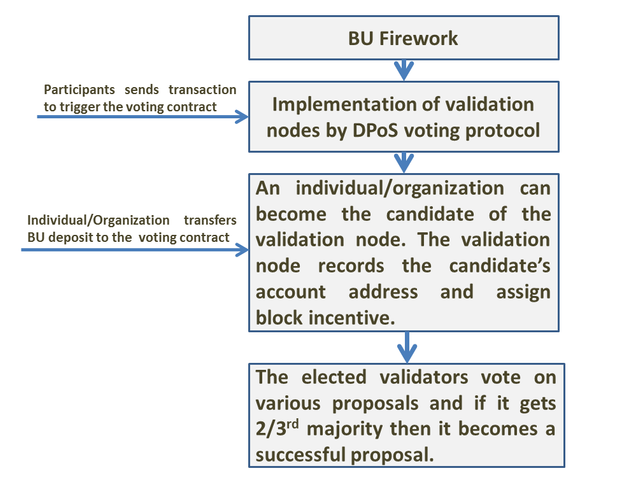
So from above, it is clearly evident that BUMO uses DPoS voting protocol so as to enhance the speed of transaction and uses BFT algorithm to cater the disadvantageous aspect of DPoS mechanism. BFT algorithm avoids centralization of the network. It makes the network more dynamic and it ensures stable nodes. Most importantly, the two layer system in BUMO makes the network more resistant to attacks.
So in this way BUMO solves the issues like "speed of transaction", "security" & "scalability".

Here value transfer is not just limited to "money". In fact money is only a number that is assigned for the valuation of an asset. And value can be any asset, be it fixed asset, or mobile asset or digital asset etc.
In 21st century the entire world is getting digitalized and there is enormous flow of information, data etc are happening everyday. But the problem is that these are happening through centralized server. So the flow of value might be dynamic but that is being routed through a third party, so when it is being routed through a third party then it can not be called as secured. So there is a need of technology which can remove the third in transaction, yet become more dynamic just like flow of information.
When it comes to transfer of value, then it generally happens in blockchain in the following ways:-
Now when it comes to secure transfer of value then the following parameters comes into picture:-
The secured transfer of value in a blockchain is enhanced with public key and private key.

In a digital world, both speed and security are equally important. Even with having a decentralized technology since 2009, major enterprises and businesses are still sticking with centralized protocol just because of the fact that they need real time interaction, so for the present competitive world "speed of transaction" is a predominant criteria to adopt a technology.
Second aspect is "security". In a digital world it becomes highly vulnerable to attack, so until the technology make their system/network tamper proof, hack proof, it will be difficult to find a place to become main stream. Apart from that here "security" also refers to the elimination of third party in a transaction.
So in order to achieve security, there is a need of blockchain technology with multi layer consensus mechanism to make it resistant to any kind of attack and in order to achieve speed, the blockchain must be scalable enough, means it should be able to process high number transaction per second just like the centralized protocol does.
Both speed and security are two such areas where there is a lot of work is to be done so that it will be in the horizon of likeliness to be adopted by large enterprises.
BUMO chain is designed in such a way that it has addressed both the issues like "speed" and "security" to a great extent and that is why it has that potential to become mainstream. BUMO has a two layer consensus mechanism to make it scalable and resistant to attack and at the same time it keeps the network decentralized. BUMO chain has a capability of up to 10000 transactions per second.

Blockchain was evolved with an aim to keep the decentralization spirit in a network intact. But when it comes to consensus algorithm to reach a general agreement, it tends to be centralized with the passage of time which is against the spirit of decentralization.
In PoW consensus, the large powerhouses have significant control over mining power. So they may monopolize at times which is against the spirit of decentralization. Similarly in PoS consensus, the large stake holder may try to destruct the network with a malign interest.
In this context BUMO is fair and transparent to the network, as any smart device can become a node in the chain and the validator nodes are elected through lottery and these validator nodes are responsible for real time updation and maintenance of the blockchain. So in this way it keeps the spirit of decentralization intact.

A smart contract can become popular and become mainstream if it has the following characteristics:-
Smart contract in BUMO works in BuVM(BUMo Virtual Machine). The Smart Contract Framework in BUMO is constituted in such a way that:-
The different components of the framework are: Bambook, BuOracle, BuDapp, BuVM.
BUMO smart contract is designed in such a way that the users are sufficiently empowered to manage tokens without smart contract. This is one of the unique feature of BUMO which makes it different from other smart contract.
In other traditional smart contract, the users/developers are required to learn a new language and create smart contract and BUMO makes it easy as it has numerous templates that allow users to create high level applications without the requirement of being a developer. BUMO Contract is generally deployed in Javascript and BuVM also supports C/C++, Python etc.
Data and the real world are coordinated via two methods through BuContract:
(i) A “real” data contract is generated and maintained by the data provider through a deposit; the deposit can be lost if validators deem the provider of the data is acting illicitly
(ii) The contract notifies the oracle (BuOracle, BUMO Oracle) of which data needs to be obtained by some triggering event programmed into its smart contract, after the oracle processes the event and returns a value that value is returned to BuVM

After evaluation of all the three chains, the CEO and PMIC team got to know that the different digital hardware which is installed at different project sites of NCC Ltd can be used as node in BUMO chain. Further every chain in BUMO consists of Main chain and Sub chain and again the sub chain is expandable in nature. So the Subchain can be designed based on the requirement of NCC Ltd. They have now 9 project site locations and if they wish to take up more projects then the number of project office will further be increased and as the sub chain of BUMO is expandable in nature, it perfectly fits to the requirement of NCC Ltd.
Secondly the CEO wants a real time interaction with different projects sites. They already have different digital hardwares installed at their project sites and the CEO got to know that these devices can be used as nodes in BUMO chain. Further he got to know that BUMO chain can scale up to 10000 transactions per second. So now he fully convinced that the real time interaction with different project sites can be possible with BUMO chain.
Further the CEO got to know that BuVM technology of BUMO chain has ready made existing templates which will make it easier for implementation.
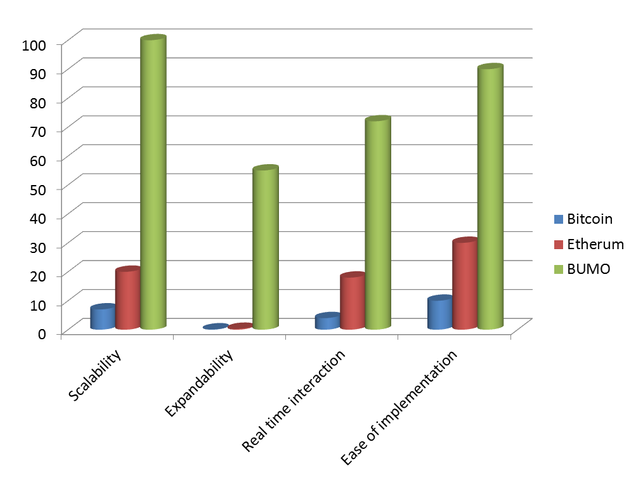
The CEO checks the comparative analysis of all three short listed chains and finally took a call and decides to integrate with BUMO chain so as to meet their requirement of real time reporting of different project sites.

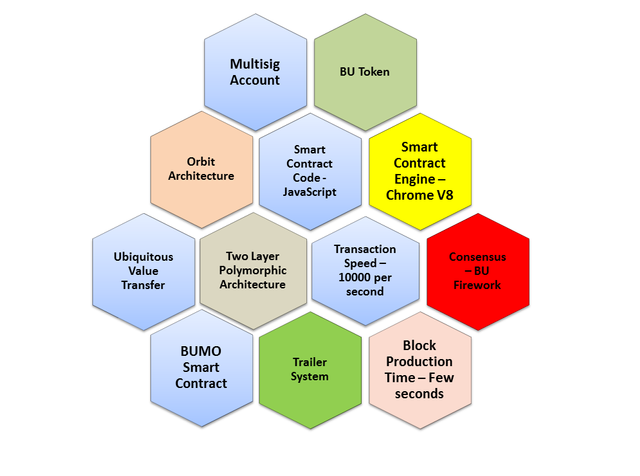
The team of BUMO has really done a lot of work in order to address the challenging issues of blockchain technology and genuine efforts have been made to bring the blockchain technology to mainstream by providing real solutions and to make it a viable option for implementation by enterprises.
More Information & Resources
BUMO Website
BUMO WhitePaper
BUMO TechnicalPaper
BUMO Telegram
BUMO Weibo
BUMO Reddit
BUMO Facebook
BUMO Twitter
BUMO Github
BUMO Wallet
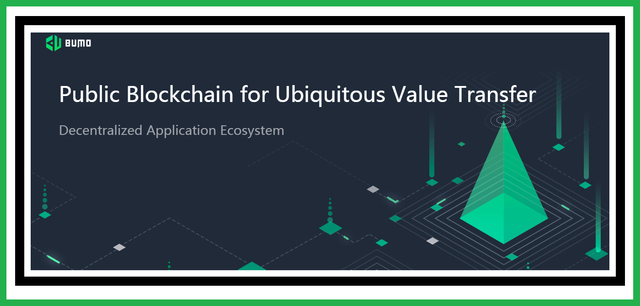



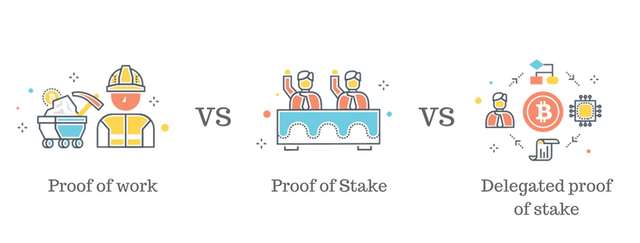

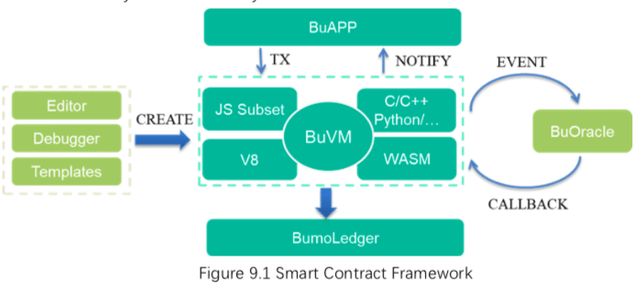
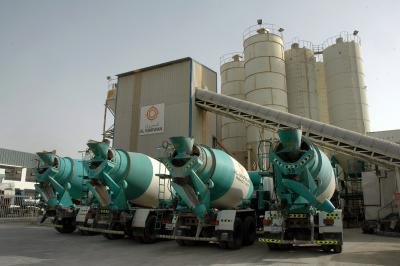

Hello, @crypto-wisdom!
Thank you for your contribution to Utopian. This is a very interesting project, and you managed to compose a comprehensive blog post that contains useful information about it. Keep up the good work.
On the content side, I am very pleased with your good work. The post is extensive and detailed, and the content is unique and editorial. I was amazed by the vast amounts of information included in your review, and even though the post is quite lengthy, I believe that you managed to communicate your ideas clearly and effectively. I appreciate the information you have provided us with.
That said, the post did have issues of style and proofreading, and I think that an additional edit pass might have helped significantly. Nevertheless, this is a very interesting blog post, and I appreciate the effort. I look forward to your next contribution.
Your contribution has been evaluated according to Utopian policies and guidelines, as well as a predefined set of questions pertaining to the category.
To view those questions and the relevant answers related to your post, click here.
Need help? Chat with us on Discord.
[utopian-moderator]
Thank you for your review, @lordneroo! Keep up the good work!
Hi @crypto-wisdom!
Your post was upvoted by @steem-ua, new Steem dApp, using UserAuthority for algorithmic post curation!
Your post is eligible for our upvote, thanks to our collaboration with @utopian-io!
Feel free to join our @steem-ua Discord server
Hey, @crypto-wisdom!
Thanks for contributing on Utopian.
We’re already looking forward to your next contribution!
Get higher incentives and support Utopian.io!
Simply set @utopian.pay as a 5% (or higher) payout beneficiary on your contribution post (via SteemPlus or Steeditor).
Want to chat? Join us on Discord https://discord.gg/h52nFrV.
Vote for Utopian Witness!